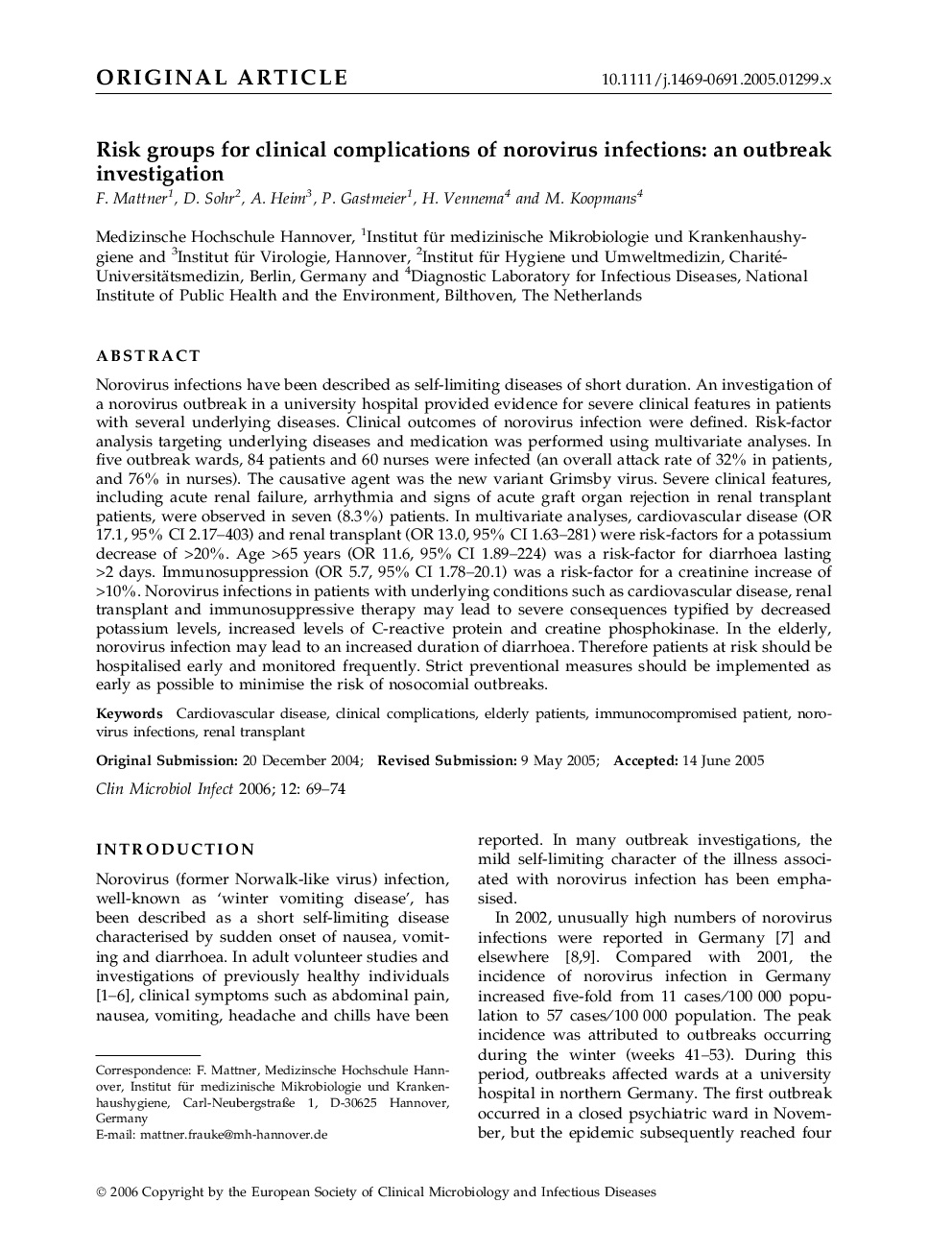| Article ID | Journal | Published Year | Pages | File Type |
|---|---|---|---|---|
| 3398386 | Clinical Microbiology and Infection | 2006 | 6 Pages |
ABSTRACTNorovirus infections have been described as self-limiting diseases of short duration. An investigation of a norovirus outbreak in a university hospital provided evidence for severe clinical features in patients with several underlying diseases. Clinical outcomes of norovirus infection were defined. Risk-factor analysis targeting underlying diseases and medication was performed using multivariate analyses. In five outbreak wards, 84 patients and 60 nurses were infected (an overall attack rate of 32% in patients, and 76% in nurses). The causative agent was the new variant Grimsby virus. Severe clinical features, including acute renal failure, arrhythmia and signs of acute graft organ rejection in renal transplant patients, were observed in seven (8.3%) patients. In multivariate analyses, cardiovascular disease (OR 17.1,95% CI 2.17–403) and renal transplant (OR 13.0, 95% CI 1.63–281) were risk-factors for a potassium decrease of >20%. Age >65 years (OR 11.6, 95% CI 1.89–224) was a risk-factor for diarrhoea lasting >2 days. Immunosuppression (OR 5.7, 95% CI 1.78–20.1) was a risk-factor for a creatinine increase of >10%. Norovirus infections in patients with underlying conditions such as cardiovascular disease, renal transplant and immunosuppressive therapy may lead to severe consequences typified by decreased potassium levels, increased levels of C-reactive protein and creatine phosphokinase. In the elderly, norovirus infection may lead to an increased duration of diarrhoea. Therefore patients at risk should be hospitalised early and monitored frequently. Strict preventional measures should be implemented as early as possible to minimise the risk of nosocomial outbreaks.
